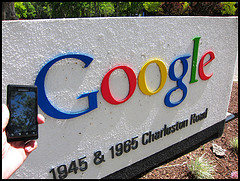State AGs To Google: How Much Ad Moolah Do You Make Off Videos Promoting Illicit Activities?
Don’t you hate waiting that entire five seconds of a YouTube ad before you can skip to the video promoting use of oxycontin without a prescription or a guide on how to forge a passport? Even if those aren’t the kinds of videos you watch (fingers crossed) the attorneys general for Nebraska and Oklahoma still do not like the fact one bit that Google is allegedly profiting off such advertising.
In a letter (PDF here, via CNET) to Google general counsel, Nebraska Attorney General Jon Bruning and Oklahoma Attorney General Scott Pruitt pose a few questions: How much cash have you raked in from ads relating to illegal sales of prescription drugs and counterfeit merchandise? And what are you doing to stop it — because the answers you already gave us aren’t really enough.
“As we understand the process, video producers are asked prior to posting whether they will allow YouTube to host advertising with the video and, for those who consent, the advertising revenue is shared between the producer and Google,” Bruning and Pruitt write. “While this practice itself is not troubling, we were disappointed to learn that many such monetized videos posted to YouTube depict or even promote dangerous or illegal activities.”
A hot-button issue in this specific letter is the sale of oxycontin and percocet without a prescription, long with video guides for forging documents.
“Not only are the activities depicted or promoted in the above-described videos illegal in and of themselves, but in the case of document forgery, the how-to guide could be instrumental in the commission of other crimes ranging from under-age drinking to acts of terrorism,” they wrote.
Google’s guidelines put the kibosh on posting any content that encourages dangerous or illegal activity, including the sale of drugs, but it kind of sounds like the Web giant is spending a lot of time running around and shutting down these videos as they crop up, instead of blocking the content from appearing in the first place. Which, to be honest, might be pretty tough to do.
“YouTube’s review teams respond to videos flagged for our attention around the clock, removing any content that violates our policies,” a Google spokesperson said in a statement. “We also have stringent advertising guidelines, and work to prevent ads appearing against any video, channel or page once we determine that the content is not appropriate for our advertising partners.”
This isn’t the first time Google has gotten into hot regulatory water over pharmaceuticals: Back in 2011 it had to pay $500 million to settle a dispute with the Department of Justice over claims it’d taken ads from rogue Canadian pharmacies.
State AGs blast Google over YouTube ads for illicit products [CNET]
Want more consumer news? Visit our parent organization, Consumer Reports, for the latest on scams, recalls, and other consumer issues.


